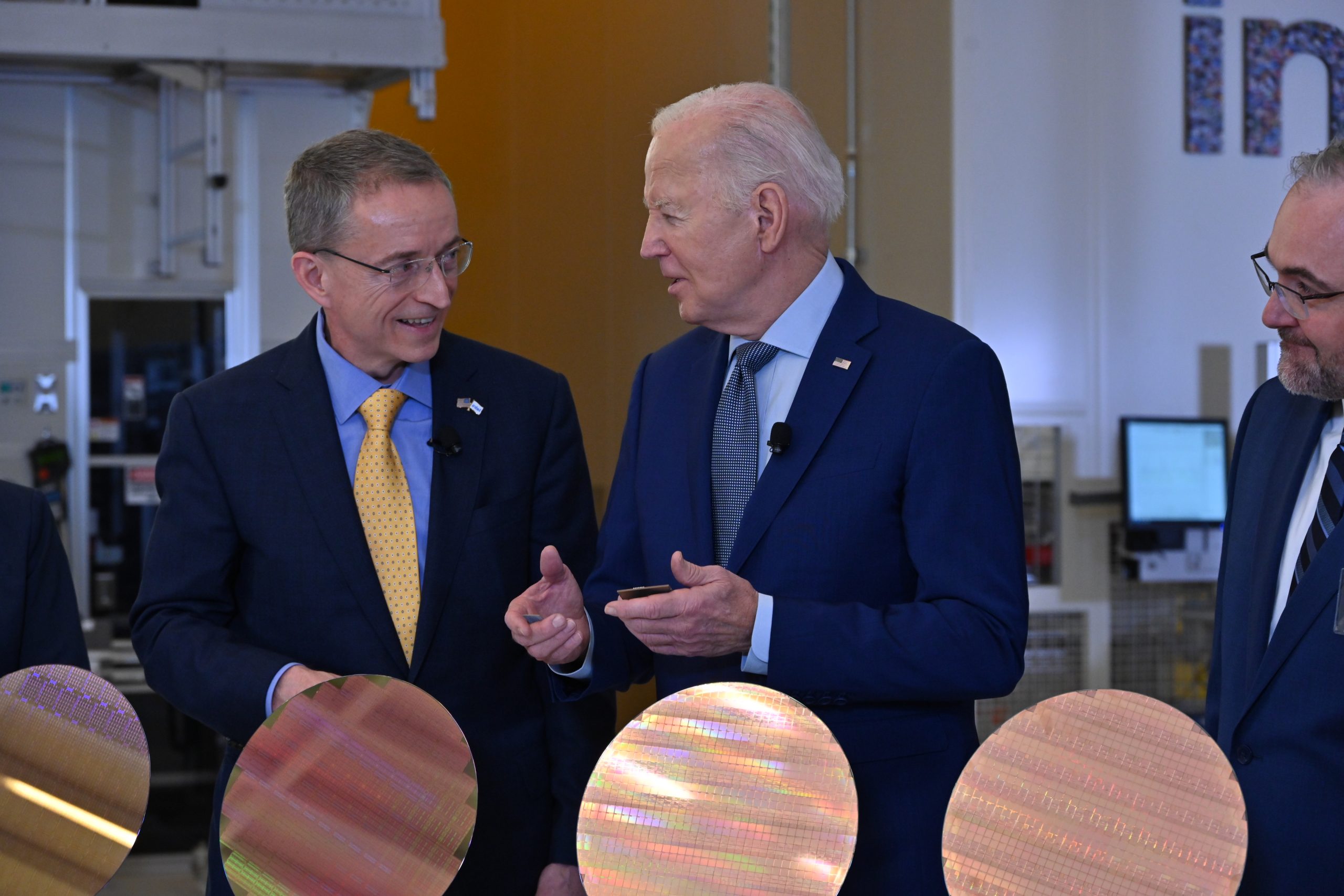

Intel chief executive Pat Gelsinger speaks with US President Joe Biden during a tour of an Intel semiconductor factory in Chandler, Arizona in March 2024. Image credit: Intel
The administration of US president Joe Biden has finalised an award of $7.86 billion (£6.27bn) in federal funding to Intel under the Chips and Science Act to advance the company’s manufacturing and semiconductor packaging projects in Arizona, New Mexico, Ohio and Oregon.
The funding is less than a $8.5bn preliminary award, announced in March, because of a Congressional requirement to use Chips Act funding to pay for a separate $3bn contract to manufacture chips for the military, called the Secure Enclave programme, Intel said.
“Strong bipartisan support for restoring American technology and manufacturing leadership is driving historic investments that are critical to the country’s long-term economic growth and national security,” said Intel chief executive Pat Gelsinger.
“Intel is deeply committed to advancing these shared priorities as we further expand our U.S. operations over the next several years.”
Intel, the biggest recipient of Chips Act funding, earlier this year said it would delay some of its planned investments into chip facilities in Ohio, a project it now intends to finish by the end of the decade instead of next year.
The company is in the process of laying off some 15,000 staff and reducing its costs after making the biggest quarterly loss in its 56-year history.
The New York Times earlier reported that the award had been reduced to take into account Intel’s own reduced or delayed investments and difficulties in finding customers for its contract chip manufacturing business, which competes with market leader TSMC, but Intel said this was not the case.
Intel lobbied extensively for the Chips Act’s passage and was seen as its largest beneficiary.
In addition to direct funding, it was offered $11bn in federal loans and a 25 percent tax credit for its investments in new factories.
The Commerce Department’s preliminary award, announced in March, supported Intel’s expansion of existing facilities in Arizona, New Mexico and Oregon and the construction of two new factories in Ohio.
The Commerce Department has been moving to finalise Chips Act contracts before a new administration takes over in January.
Earlier in November it said it completed the terms of a $6.6bn grant to Taiwan Semiconductor Manufacturing Co (TSMC) for the expansion of its plans for two facilities in Phoenix, Arizona and the addition of a third, newly announced plant.
TSMC’s plants are intended to manufacture chips using the world’s most advanced processes on US soil for the first time.
China is reportedly pursuing three alleged US NSA operatives, after cyberattacks on Chinese infrastructure
Chip making giant ASML mirrors other equipment makers, and outlines financial impact of Donald Trump's…
AI is transforming cybersecurity, offering faster defence and smarter attacks. Learn how businesses can harness…
Search engine giant being sued for £5 billion ($6.64 billion) damages over allegations for online…
H20 chip designed for Chinese market now requires special export licence, as Trump Administration tightens…
Apple reportedly working on lighter, cheaper Vision Pro, another model that links directly to Mac…